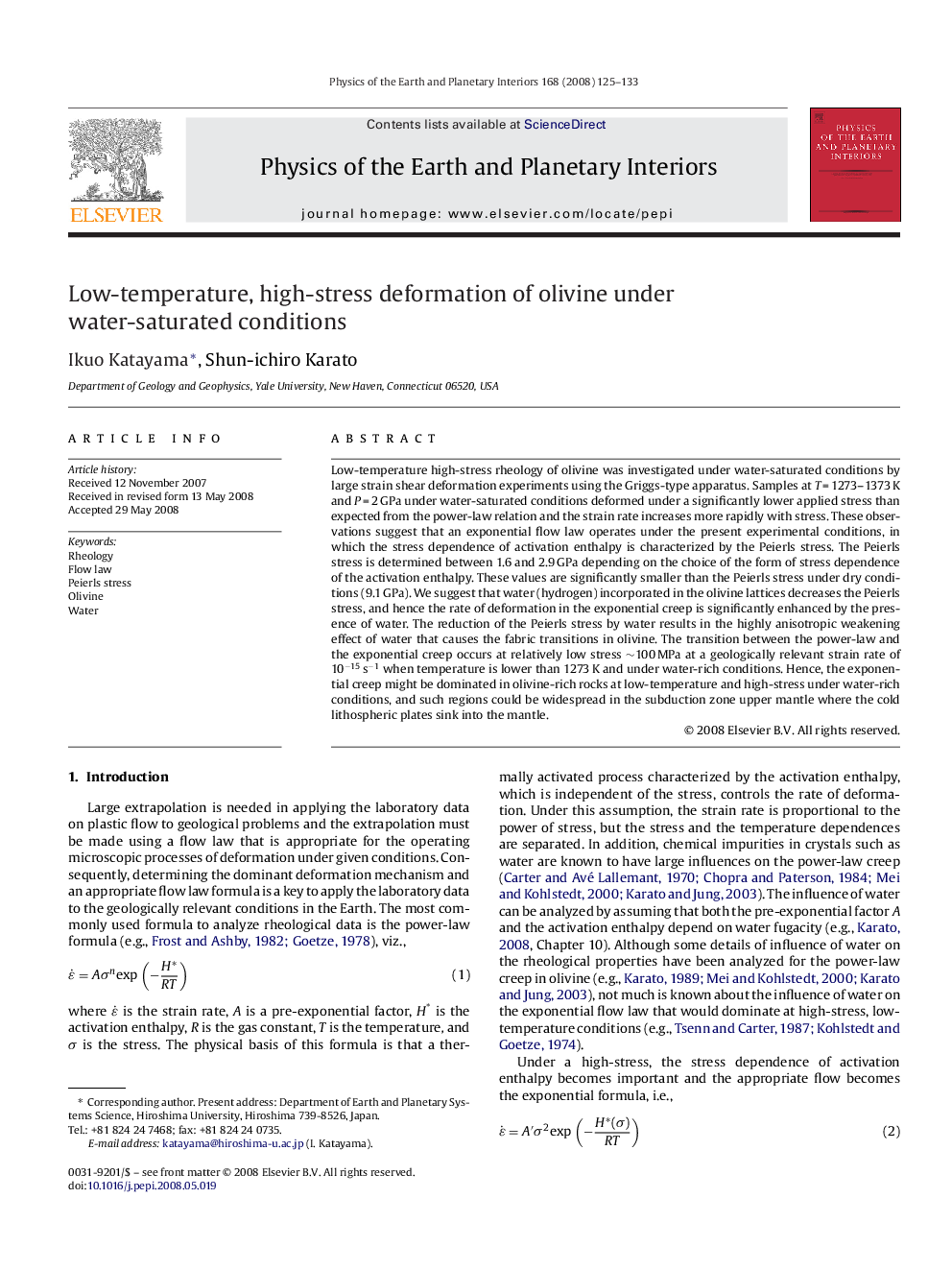| Article ID | Journal | Published Year | Pages | File Type |
|---|---|---|---|---|
| 4742696 | Physics of the Earth and Planetary Interiors | 2008 | 9 Pages |
Low-temperature high-stress rheology of olivine was investigated under water-saturated conditions by large strain shear deformation experiments using the Griggs-type apparatus. Samples at T = 1273–1373 K and P = 2 GPa under water-saturated conditions deformed under a significantly lower applied stress than expected from the power-law relation and the strain rate increases more rapidly with stress. These observations suggest that an exponential flow law operates under the present experimental conditions, in which the stress dependence of activation enthalpy is characterized by the Peierls stress. The Peierls stress is determined between 1.6 and 2.9 GPa depending on the choice of the form of stress dependence of the activation enthalpy. These values are significantly smaller than the Peierls stress under dry conditions (9.1 GPa). We suggest that water (hydrogen) incorporated in the olivine lattices decreases the Peierls stress, and hence the rate of deformation in the exponential creep is significantly enhanced by the presence of water. The reduction of the Peierls stress by water results in the highly anisotropic weakening effect of water that causes the fabric transitions in olivine. The transition between the power-law and the exponential creep occurs at relatively low stress ∼100 MPa at a geologically relevant strain rate of 10−15 s−1 when temperature is lower than 1273 K and under water-rich conditions. Hence, the exponential creep might be dominated in olivine-rich rocks at low-temperature and high-stress under water-rich conditions, and such regions could be widespread in the subduction zone upper mantle where the cold lithospheric plates sink into the mantle.
